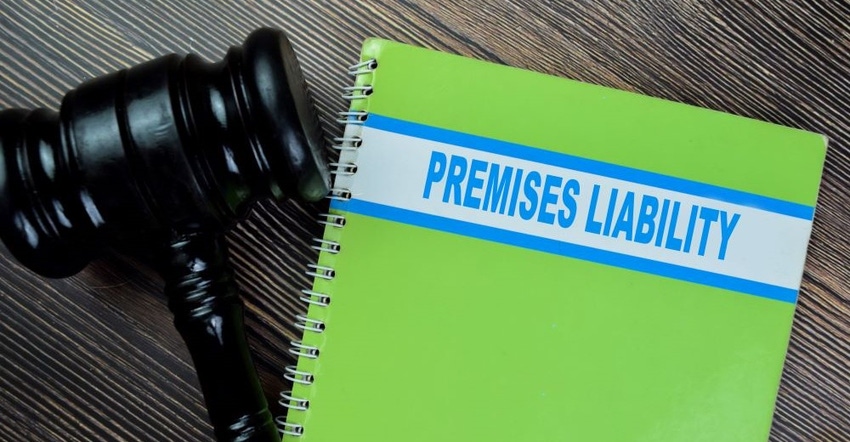Premises Liability: Can a Self-Storage Operator Be Held Liable for Onsite Crimes Committed by Unknown Assailants?
A criminal enters your self-storage property and commits a serious offense against one of your tenants. Are you, as the facility operator/landlord, liable? According to the outcome of a recent court case, you might be. An industry attorney explains what happened and what it could mean for self-storage owners.

Reprinted with permission from the July 2023 Legal Monthly Minute
One of the worst things that can happen to a self-storage owner is an unknown assailant commits a serious crime against a tenant on site, such as an assault, shooting, rape or murder. In a scenario like this, it’s fair to wonder if the victim or their family could recover restitution against the facility operator, even if the perpetrator was completely unknown and not connected to the business.
The question of premises liability has been debated by the courts for decades. The central issue is whether a landlord can be found liable for an injury or death based on a claim of negligent security. In essence, what would need to be proven for a business owner to have any responsibility for the acts of an unknown third party who commits a crime without their knowledge or involvement?
The Notion of ‘Reasonably Foreseeable’
There was a recent decision in the Georgia Supreme Court that may answer some of these questions. In Georgia CVS Pharmacy LLC vs. Carmichael, plaintiff James Carmichael was shot while in the pharmacy’s parking lot during an armed robbery. The court reaffirmed past decisions when it held that the landlord would owe no “duty” to its customers unless the crime that occurred was “reasonably foreseeable.”
The court explained that, to determine whether a crime was reasonably foreseeable, it would need to establish “whether the totality of the circumstances relevant to the premises gave the proprietor sufficient reason to anticipate the criminal act giving rise to the plaintiff’s injuries on the premises.” In other words, had any crimes occurred on the site previously to give the operator notice of the risk that such a thing could happen again?
The court found that for a crime to be foreseeable, it must be similar in nature to one that had previously occurred on the property. It also found that if a crime was reasonably foreseeable, the operator had a “duty” to protect its customers; however, they would be liable only if they breached that responsibility by failing to take or maintain sufficient security procedures. In other words, there could only be a finding that the business owner is liable if the plaintiff presented evidence that the operator violated the applicable standard of care for the known risk.
In the Georgia case, the verdict was in favor of Carmichael, holding that the crime was, in fact, foreseeable. Based on the jury’s decision, the state supreme court upheld the determination that CVS hadn’t met the standard of care for security.
Ordinary Care
While self-storage operators owe a certain level of “ordinary care” to their customers, they aren’t otherwise “insurers of an invitee’s safety” while on the premises. This level care increases when a risk is known and, therefore, foreseeable. If an incident occurs, the question then becomes whether the operator acted sufficiently to protect their customers once they had knowledge of the risk. In the Georgia case, the court agreed with the lower-court jury that CVS did not.
Such a holding is a warning to self-storage operators (and all landlords) that they must increase their security to protect customers and manage known risks on their properties. Of course, there’s a possibility that a court could find that an operator’s security measures were sufficient, even once that duty of care has been determined and based on the recognition that not all risks can be removed from a situation.
How far must a landlord go to protect their tenants? As this case points out, the determination of whether a crime is foreseeable and the operator acts appropriately to protect and secure its customers based on that knowledge may have a far-reaching impact on the future liability of all landlords, including self-storage operators.
Scott I. Zucker is a founding partner in the Atlanta law firm of Weissmann Zucker Euster + Katz P.C. Practicing law since 1987, he represents self-storage owners and managers on legal matters including property development, facility construction, lease preparation, employment policies and tenant-claims defense. To reach him, call 404.364.4626, or email [email protected].
About the Author(s)
You May Also Like





